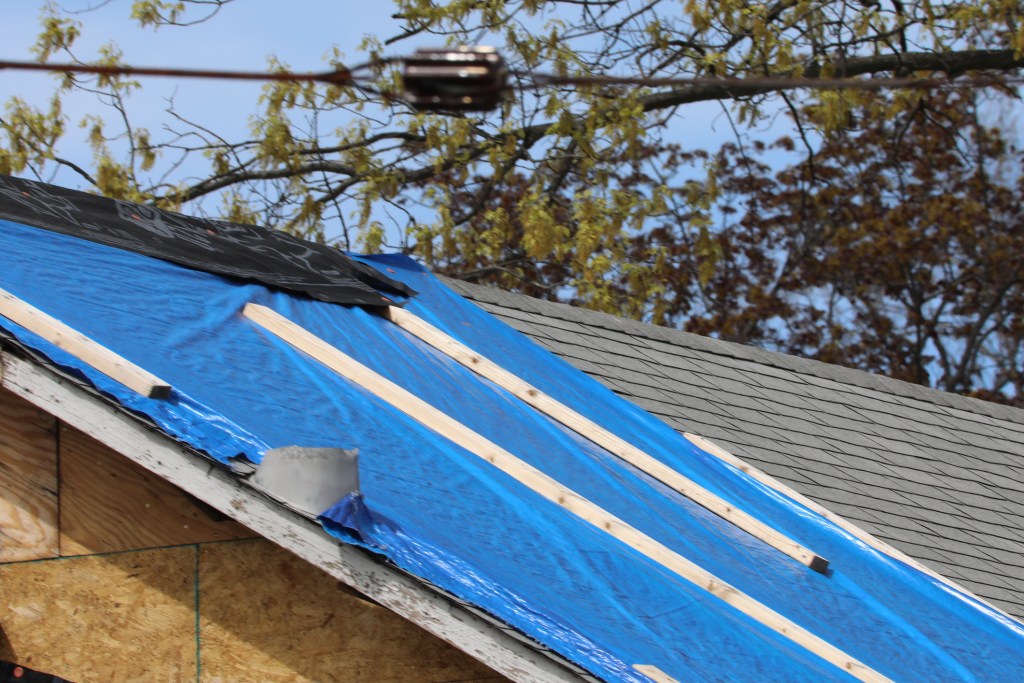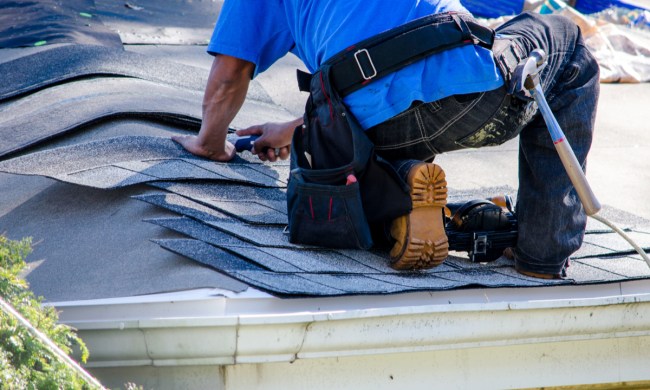Homeowners understand external situations, such as storm damage or other harm to their roofs, can happen. For this reason, many invest in homeowners insurance policies to help cover the cost of the repairs. While these policies are often a requirement for most mortgage companies to finance a home, there may be limitations in the event of roof damage.
In some instances, the damage that requires repairing or replacing isn’t covered, or the insurance company denies payment for it. This can be frustrating and discouraging for homeowners when these situations occur. If you have had difficulty getting insurance to pay for repairs or a roof replacement, read on to learn how to get insurance to pay for a roof replacement.

How homeowners insurance works for roofs
Knowing how homeowners insurance acts is essential to understand what insurance may and may not cover with respect to roof damage. Most homeowners insurance companies, regardless of the insurance provider, ultimately operate the same. Often, many mortgage companies require homeowners insurance to acquire financing, and the insurance is critical to protect the home from external issues.
Given that the roof is the most exposed structural component of the house, homeowners insurance often covers a good portion of the damage to a roof. Additionally, the dwelling coverage section of your homeowners insurance policy is the article portion of your policy that protects the roof and exterior.
Circumstances where insurance covers roof damages
Reviewing your homeowners insurance coverage with more extensive detail is always a good idea. Doing this helps you understand what types of potential damage are covered and excluded by the insurance policy when you need to know how to get insurance to pay for a roof replacement.
You must keep in mind that you have agreed to its terms once you sign off on a policy, including any limitations for roof coverage. Below are some situations in which many homeowners insurance policies will cover roof repairs or replacements.
- Fire, including house fires, smoke damage, and wildfire damage
- Lightning
- Explosion
- Extensive wind damage
- Volcanic eruption
- Electrical surge
- Damage from a vehicle or aircraft impact
- Harm related to vandalism or crime
- Collapsing objects, such as a tree or large branches
- Widespread snow, ice, or sleet buildup
- Freezing, bursting, or flooding of pipes or other water appliances
- No-fault water damage
While there are a lot of potential perils that insurance companies cover in the event of roof damage, there are some areas that insurance may or may not cover. It’s imperative to review your policy yearly for any changes that your insurance company may make, especially regarding issues that can affect whether your insurance will or won’t pay for a roof replacement.
What may not be covered by insurance
Many homeowners may think that their insurance policy covers any damage to the roof or home. However, there are more limitations to a home insurance policy regarding roof or structural damage. There are several scenarios in which insurance doesn’t cover damages to a roof that can vary. Here are some common scenarios when insurance may not pay for a roof repair or replacement.
- Normal wear and tear – Over time, the roof can have regular wear and tear when subject to the elements. A roof’s age is also a significant factor that can deter insurance from paying for a roof replacement. Shingles can fall, flashing can leak, and other wear can cause damage to the roof. If there’s damage to the roof from wear and tear, insurance will likely not cover the repair work.
- Damage is your fault – Homeowners insurance typically only covers instances of external conditions that cause roof damage. For example, if flashing causes a long-term leak that results in roof damage, an insurance adjuster will likely advise insurance not to cover it. Also, another factor is that insurance companies won’t cover or pay for damages to the ceiling in the event of an attempted repair gone wrong.
Recognize that these situations are just the most common reasons that insurance may not cover roof damage. There may be additional factors that could be specific to your homeowners insurance policy that differ from the “norm.”

Concluding thoughts
When damage occurs to your roof, you expect and anticipate your insurance to cover the repair work, since they pay yearly premiums for these types of situations beyond their control. However, how to get insurance to pay for a roof replacement could require some additional research on your current insurance policy and coverage options.
If your insurance doesn’t pay for a total replacement, keep in mind that there may be negotiation available with your insurance company to pay to repair some of the damages. Roof damage can be stressful enough. Therefore, be open to working with your insurance company and a roofing contractor while exploring the options to repair or replace your roof.



